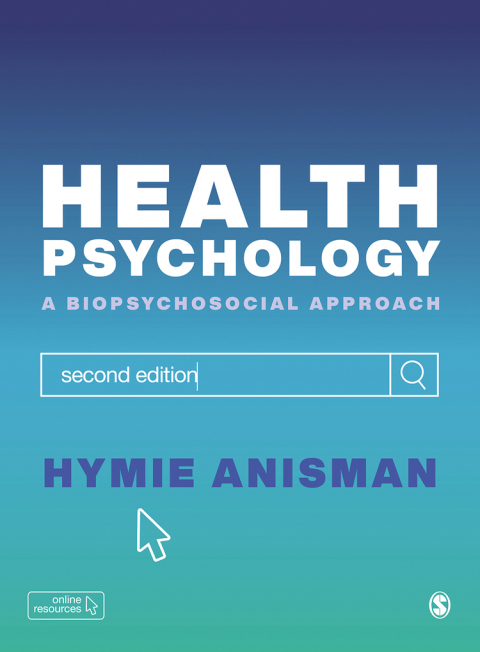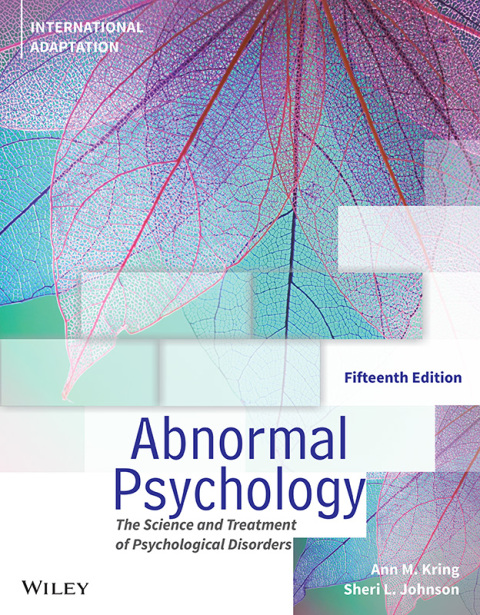Description
Efnisyfirlit
- About the author
- Preface
- Acknowledgments
- Discover your textbook’s online resources!
- 1 Health psychology described
- Getting there from here
- Dealing with coordinated systems
- Evidence-based practice
- What do we mean when we say ‘health psychology’?
- Psychosomatic illness
- A continuum between wellness and illness
- Vulnerability versus resilience
- Illness comorbidities
- Health psychology globally
- Encouraging behavioral change
- Including biopsychosocial perspectives of illness
- Summary
- 2 Methodological approaches in health psychology
- Linkages to illness
- Research using animal models
- Regression approaches
- Epidemiological approaches
- Program evaluation
- Data synthesis
- Caveats on methodology
- Summary
- 3 Biological systems and functioning
- A genetics primer
- Gene × environment interactions
- The nervous system
- Autonomic nervous system
- Endocrine systems
- Hormones associated with the stress response
- Eating and energy-related hormones
- Sex hormones
- Growth factors
- Immune functioning
- The enteric nervous system and the microbiome
- Summary
- 4 The stress process
- Attributes and dimensions of stressors
- Stressor appraisals
- Characteristics of stressors
- Previous stressor experiences
- Social support
- Stressor effects across the life span
- Collective and transgenerational trauma
- Instruments used to assess stressor experiences, appraisals, and coping
- Summary
- 5 Neurobiological stress responses
- Stressor-provoked neurobiological changes
- Hormonal changes elicited by stressors
- Stress and energy balances
- Sex hormones
- Oxytocin
- Growth factors
- Stress and immunity
- Summary
- 6 Healthy behaviors, unhealthy behaviors, and behavioral change
- Treatment of illness
- Individualized treatment strategies
- Intervention approaches
- Risk factors related to health and disease
- Cultural and ethnic differences
- Sex differences
- Behavioral change means health change
- Changing attitudes, changing behaviors, and barriers to change
- Psychosocial and cognitive perspectives of health behaviors
- Positive Psychology
- Harm reduction programs
- Summary
- 7 Lifestyle factors
- Keeping the motor running
- Nutrition
- Eating-related processes
- Obesity
- Making changes
- Health foods and the expansion of neutraceuticals
- Public health and public policy
- Exercise
- Sleep disorders
- Accidents at work and at home
- Summary
- 8 Cardiovascular illnesses and related disorders
- Getting to know the heart
- Diseases of the heart
- Hypertension
- Coronary artery disease
- Factors that promote heart disease
- Personality factors
- Physiological stress responses in relation to heart disease
- Pharmacological treatments
- Chronic obstructive pulmonary disease (COPD)
- Stroke
- Summary
- 9 Diabetes
- The broad health impact of diabetes
- Gestational diabetes
- Type 2 diabetes
- Stressors and type 2 diabetes
- Inflammatory factors in type 2 diabetes
- Gut bacteria and diabetes
- Dealing with diabetes
- Medications
- Summary
- 10 Immune-related disorders
- Allergies
- Infectious diseases
- Sexually transmitted infection
- Lifestyle factors in relation to immune functioning and infection
- Autoimmune disorders
- Summary
- 11 Cancer
- What is cancer and how does it develop?
- Genetic contributions
- Environmental contributions
- Viral factors
- A stress–cancer link
- Eating, nutrition, and cancer
- Exercise and cancer
- Sleep and cancer
- Cancer treatment and psychological factors
- Treatment methods
- Another word on precision medicine
- Summary
- 12 Pain
- Defining pain
- Pain assessments
- Psychological consequences of chronic pain
- Psychological factors related to pain perception
- Psychosomatic (psychogenic) pain
- Neurophysiology of pain processes
- Pain management
- Psychological manipulations to deal with pain perception
- Complementary and alternative medicine
- Summary
- 13 Addiction
- Defining addiction
- A broad view of addiction
- Factors leading to addiction
- Multiple neurochemical components associated with addiction
- Why are addictions as persistent as they are?
- A link between propensity for eating and drug addiction
- Putting things together
- Treatment strategies
- Drug treatments to curb addictions
- Summary
- 14 Major physical illnesses
- Quality of life
- Adjustment to chronic illness
- Appraising and coping with illness
- Iatrogenic illness
- Stigma
- Self-perceptions
- Summary
- 15 Dealing with illness
- Recognizing warnings and health risks
- Illness perceptions and beliefs
- Relation between the patient and the health provider
- Obtaining medical care
- Summary
- 16 Caregiving, death, and grief
- Caregiving
- The dying process
- End-of-life care
- Physician-assisted death
- Loss and grieving
- Summary
- 17 From molecules, to individuals, to communities, to policy
- Translational research
- Instigating policy change
- Summary
- References
- Index






Reviews
There are no reviews yet.